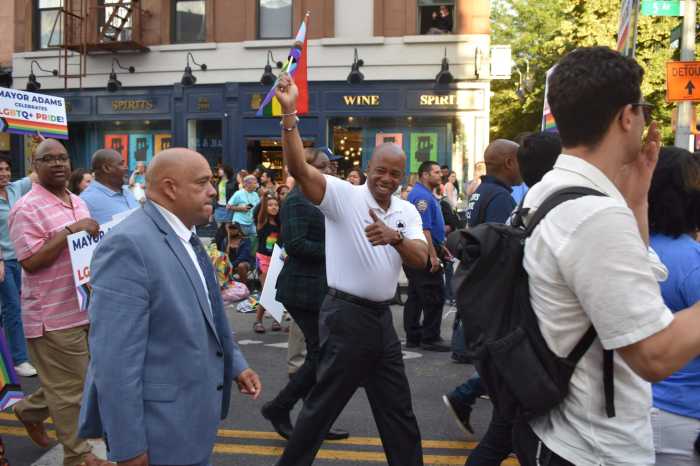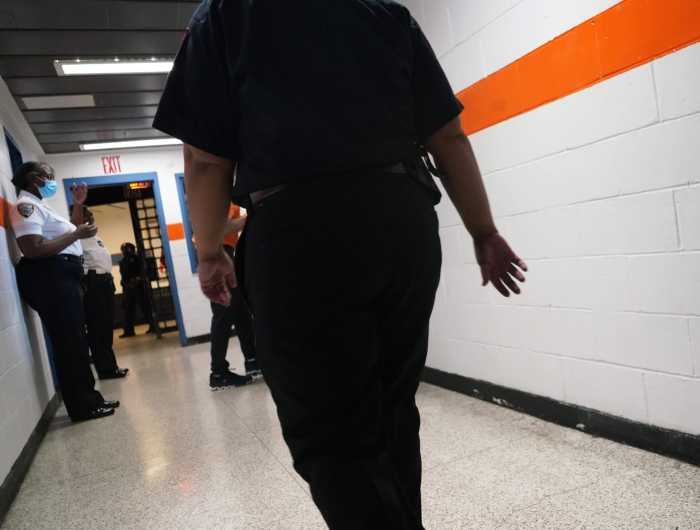At the Paul Rapoport Foundation’s farewell reception on May 14, executive director Jane Schwartz was introduced by Carl Siciliano, the founder of the Ali Forney Center, a foundation grantee. | DONNA ACETO
The Paul Rapoport Foundation, established in 1987 with a $7.5 million endowment, held a May 14 farewell reception at Chelsea’s Dream Hotel in recognition of its decision — made back in 2009 — to disburse the remaining grants it can support by the end of June and cease operations entirely by next year.
Rapoport, an attorney who was a co-founder of both the LGBT Community Center and Gay Men’s Health Crisis, died of AIDS in 1987 at the age of 47. Since the foundation was established under the terms of his will, it has distributed grants to roughly 200 LGBT and HIV/ AIDS organizations totaling nearly $17 million, though the final dollar figure will not be known until early next year.
In recent years, the foundation placed priorities on support of groups within transgender and people of color communities as well as those serving youth.
Paul Rapoport Foundation executive director Jane Schwartz (right) is joined by the group’s program director Ona Winet, David Stern, the executive director of Equal Justice Works, a foundation grantee, Eugene Chen, Equal Justice Works’ 2014 Paul Rapoport Fellow, and Alisa Goodwin, the manager of fellowships and advancement at Equal Justice Works. | DONNA ACETO
The decision to spend down its resources, the group explained, reflects its desire to make the greatest contribution possible in an environment where many community organizations are suffering the continued effects of the economic slowdown that began in 2008.
In its 2009 announcement of the timeframe for winding down operations, the group stated, “Given the current financial crisis, the foundation has been searching for a way to balance the needs of the LGBT communities — which are becoming more acute amidst the economic tumult — with its strengths as a funder and its own fiscal situation… the foundation’s board and staff unanimously agreed to seek to maximize its impact over the next five years by dramatically increasing its funding levels in the near-term and spending-out by 2015.”


































